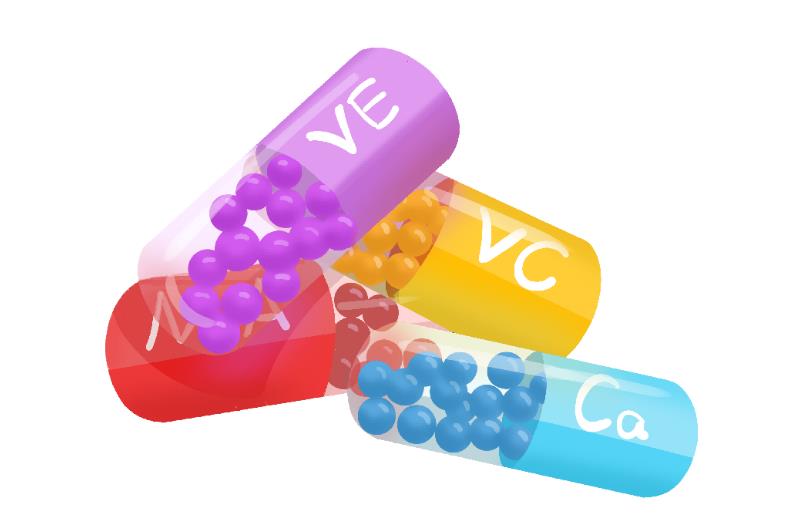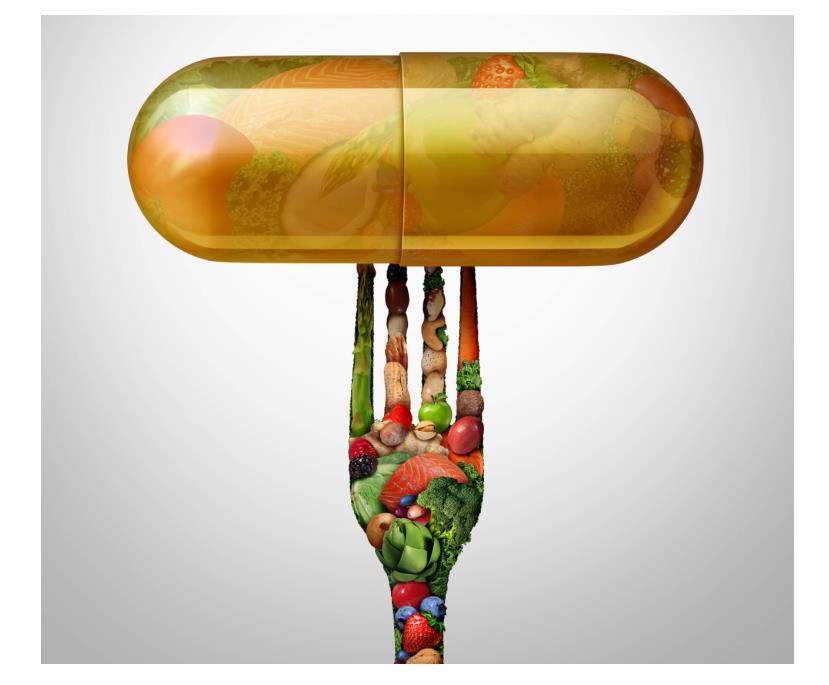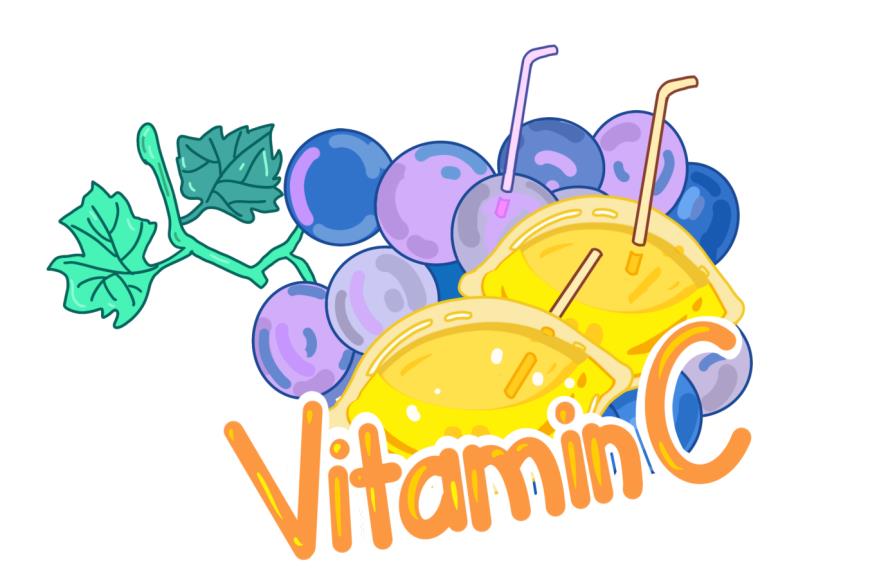Health is the cornerstone of high-quality life, so more and more people begin to pay attention to health problems.
Dietary supplements have attracted more attention and welcome among the general population (defined as community residents without special nutritional needs) because of their labels such as "beneficial to health", "no side effects" and "disease prevention".
Most people use multivitamin and mineral supplements to ensure adequate intake and prevent or alleviate diseases.
A survey found that 61% people think that nutritional supplements are "fully proved" and 48% people think that supplements are "a simple way to keep healthy" [1]. Some people even regard vitamins and minerals as a means to compensate for bad eating habits such as picky eaters.
Is dietary supplements really a "panacea" that will not do harm to the body, as everyone thinks?
01
What is a dietary supplement?
"
Dietary nutritional supplement is defined as: a kind of food containing certain nutrients, which is produced for the purpose of making up for the possible deficiency in human normal diet and is also an essential nutrient for human body.
Common nutritional supplements may contain one or more of the following dietary components: vitamins, minerals, amino acids, unsaturated fatty acids, etc., or concentrates, metabolites, extracts or combined products of the above components. It can be taken orally in the form of pills, capsules, tablets or liquid, but it cannot replace ordinary food or be used as a dietary substitute.

Source: Qianku.com
02
Will taking dietary supplements be effective?
"
Supplementary nutrients can increase the plasma concentration of corresponding nutrients in a certain range, especially vitamins and fatty acids.
However, the increase in the concentration of nutrients in plasma does not necessarily mean better health, because the circulating concentration may not reflect the storage concentration of nutrients in organs. At the same time, due to the differences in bioavailability and consumption frequency of nutrients from food sources and supplements (such as omega-3 fatty acids, the biochemical forms of fatty acids from dietary sources and supplements are different), even if the normal nutrient concentration is achieved by taking dietary supplements, the body may not be fully and effectively utilized [2].
Up to now, the meta-analysis of studies on multivitamin supplements shows that the use of supplements has no obvious benefits if people have got enough nutrition in food [3]. Most vitamin and mineral supplements have not played an obvious role in the primary prevention of chronic diseases such as cardiovascular time, cancer and cognitive impairment, which shows that most supplements have no significant effect on preventing chronic diseases in normal people [4].

Source: Qianku.com
03
Excessive use of dietary supplements
What are the risks?
"
Dietary supplements are always considered to be "natural", however, the concentrated form of nutrients may expose users to the risk of injury when taking too much.
It is reported that the intake of any nutrients by adults from food does not exceed the safe upper limit, however, the intake of at least one nutrient by 39.8% dietary supplement users exceeds the safe upper limit [5].
1, fat-soluble vitamins
Vitamin A, also known as retinol, lack of retinol will lead to night blindness, and its role in preventing cancer has not been confirmed by research. However, it has been reported that high retinol TNI (> 2 500 g/d) combined with low vitamin D TNI (< 11 g/d) is related to fracture in postmenopausal women, and even long-term excessive supplementation of vitamin A precursor β -carotene group may lead to an increased risk of lung cancer.
Vitamin E is a strong antioxidant, which can protect the stability of cell membrane by interrupting the chain reaction of free radicals, prevent the formation of lipofuscin on the membrane and delay the aging of the body. However, the risk of all-cause death of people who take long-term high-dose vitamin E supplements is significantly increased.

Source: Qianku.com
2, water-soluble vitamins
Vitamin B is the general term for B vitamins. Contains vitamin B1, vitamin B2, vitamin PP, vitamin B6, pantothenic acid, biotin, folic acid and vitamin B12. Folic acid plays an important role in human DNA synthesis and cell development, and its deficiency can lead to megaloblastic anemia. However, current studies show that folic acid supplementation has dual effects on cancer development, and excessive intake of folic acid will significantly increase the liver/body weight ratio, which may promote the development of hepatocellular carcinoma induced by high-fat diet.
Vitamin C participates in the complex metabolic process of the body, can promote growth and enhance the resistance to diseases, and can be used as nutritional supplements and antioxidants. A large number of studies have confirmed that the use of high-dose vitamin C has little effect on cancer, cardiovascular disease and infection in the general population. Compared with fat-soluble vitamins, vitamin C is relatively safe, but high doses should be used cautiously, which may cause obvious side effects such as urinary calculi in some susceptible patients.

Source: Qianku.com
3. Other supplements
Iron is an essential element to form heme, which is the raw material for synthesizing hemoglobin and myoglobin, and is also an essential substance for promoting vitamin metabolism. Iron supplementation can improve anemia symptoms of cancer patients. However, high plasma ferritin concentration is an indicator of iron accumulation, which may affect the life expectancy of healthy people. People who are not iron deficient will not benefit from iron supplements, and may even cause side effects.
04
How to use nutritional supplements in food and diet
Strike a balance between them?
"
For well-nourished adults, besides iodine and other individual nutrients, priority should be given to obtaining natural nutrients through reasonable dietary collocation.
At present, research shows that the effect of supplements seems to be limited to certain age groups, living environment or diseases with impaired nutrient absorption. Using supplements to solve unhealthy eating patterns is an overly narrow solution.
Dietary supplements should be considered only when the diet cannot meet the nutritional needs.
Dietary nutritional supplements are not the more the better, and should not be used blindly. Appropriate products should be selected and supplemented reasonably under the guidance of doctors or professional nutritionists.
References:
[1] de Jong N, Ocké MC, Branderhorst HA, Friele R. Demographic and lifestyle characteristics of functional food consumers and dietary supplement users. Br J Nutr. 2003 Feb; 89(2):273-81.
[2] Lentjes MAH. The balance between food and dietary supplements in the general population. Proc Nutr Soc. 2019 Feb; 78(1):97-109. Epub 2018 Oct 30.
[3] Fortmann SP, Burda BU, Senger CA, Lin JS, Whitlock EP. Vitamin and mineral supplements in the primary prevention of cardiovascular disease and cancer: An updated systematic evidence review for the U.S. Preventive Services Task Force. Ann Intern Med. 2013 Dec 17; 159(12):824-34.
[4] Grodstein F, O’Brien J, Kang JH, Dushkes R, Cook NR, Okereke O, Manson JE, Glynn RJ, Buring JE, Gaziano M, Sesso HD. Long-term multivitamin supplementation and cognitive function in men: a randomized trial. Ann Intern Med. 2013 Dec 17; 159(12):806-14.
[5] Guallar E, Stranges S, Mulrow C, Appel LJ, Miller ER 3rd. Enough is enough: Stop wasting money on vitamin and mineral supplements. Ann Intern Med. 2013 Dec 17; 159(12):850-1. Erratum in: Ann Intern Med. 2014 Jan 21; 160(2):143.
[6] Li JT, Yang H, Lei MZ, Zhu WP, Su Y, Li KY, Zhu WY, Wang J, Zhang L, Qu J, Lv L, Lu HJ, Chen ZJ, Wang L, Yin M, Lei QY. Dietary folate drives methionine metabolism to promote cancer development by stabilizing MAT IIA. Signal Transduct Target Ther. 2022 Jun 22; 7(1):192. Erratum in: Signal Transduct Target Ther. 2022 Dec 28; 7(1):401.
[7] Doseděl M, Jirkovsky E, Macáková K, Kr?mová LK, Javorská L, Pourová J, Mercolini L, Remi?o F, Nováková L, Mladěnka P, On Behalf Of The Oemonom. Vitamin C-Sources, Physiological Role, Kinetics, Deficiency, Use, Toxicity, and Determination. Nutrients. 2021 Feb 13; 13(2):615.
Author: Wen Jia
Doctor of Anesthesiology, Capital Medical University
Source: Tadpole Staff
关于作者